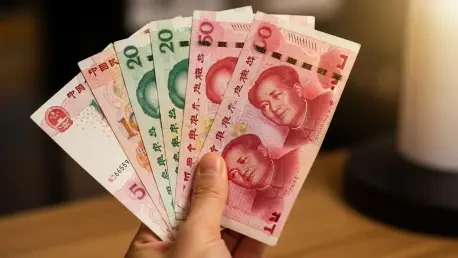The financial landscape of Hong Kong continues to evolve as a pivotal hub for international currency markets, with the Hong Kong Monetary Authority (HKMA) playing a central role in fostering stability and growth through strategic collaborations. A recent tender of three-month RMB bills by the People’s Bank of China (PBOC) in Hong Kong exemplifies this dynamic, shedding light on the intricate balance of monetary policy and regional economic integration. This event is not just a routine financial operation but a significant indicator of broader trends in RMB internationalization and market liquidity. It captures the attention of investors and analysts alike, who see these tenders as a window into the PBOC’s approach to managing economic stability. As Hong Kong solidifies its position as a gateway for RMB-related activities, the implications of such financial instruments extend far beyond local markets, influencing global perceptions of the currency’s strength and appeal.
Strengthening Regional Financial Ties
Deepening Collaboration with Mainland China
The partnership between the HKMA and the PBOC stands as a cornerstone of financial integration in the region, with the recent RMB bills tender highlighting the depth of this relationship. This collaboration ensures a seamless platform for trading RMB-denominated instruments, which is crucial for maintaining liquidity in Hong Kong’s financial markets. By facilitating these tenders, the HKMA reinforces the city’s status as a leading international financial center, capable of handling significant volumes of cross-border transactions. The strategic issuance of three-month bills by the PBOC serves as a mechanism to stabilize the currency while also enhancing its accessibility to global investors. Such efforts reflect a shared commitment to fostering economic resilience, ensuring that Hong Kong remains a vital link in the chain of RMB internationalization. Moreover, this partnership signals to market participants a unified approach to tackling economic challenges, creating a sense of confidence in the region’s financial infrastructure.
Building Trust in Market Mechanisms
Beyond the immediate transactional benefits, the RMB bills tender underscores a broader objective of building trust among investors and financial institutions in the region’s market mechanisms. The regular issuance of these short-term instruments by the PBOC, supported by the HKMA, provides a predictable framework for liquidity management, which is essential for mitigating risks associated with currency fluctuations. This predictability allows banks and businesses operating in Hong Kong to plan their financial strategies with greater certainty, knowing that the central authorities are actively working to maintain stability. The tender results also serve as a barometer for gauging the PBOC’s monetary policy stance, offering insights into potential shifts in credit availability or interest rate policies. As a result, this financial exercise fosters a transparent environment where stakeholders can make informed decisions, further solidifying Hong Kong’s reputation as a reliable hub for international finance.
Implications for RMB Internationalization
Enhancing Global Currency Appeal
The ongoing issuance of RMB bills in Hong Kong represents a deliberate strategy to elevate the currency’s profile on the global stage, with far-reaching implications for its international appeal. These three-month bills are more than just tools for short-term borrowing; they are instrumental in increasing the liquidity of the RMB, making it a more attractive option for investors worldwide. The HKMA’s active role in these tenders demonstrates a commitment to ensuring that Hong Kong remains at the forefront of this transformative process. By providing a robust platform for RMB transactions, the city helps bridge the gap between Mainland China and international markets, facilitating smoother cross-border trade and investment. This initiative aligns with long-term goals of currency internationalization, positioning the RMB as a viable alternative in global finance. The consistent focus on such financial instruments reflects an adaptive approach to meeting the demands of a rapidly evolving economic landscape.
Signaling Monetary Policy Directions
Another critical aspect of the RMB bills tender lies in its ability to signal potential directions in the PBOC’s monetary policy, offering valuable insights to market observers. The outcomes of these tenders are closely analyzed by financial experts to predict future adjustments in liquidity or inflation control measures, as they often reflect the central bank’s broader economic priorities. For instance, the terms and demand for the three-month bills can indicate whether tighter or looser credit conditions might be on the horizon, influencing investment strategies across the region. Hong Kong’s role as the venue for these tenders amplifies their significance, as the city’s financial markets act as a testing ground for policies that could eventually impact global RMB usage. This interplay between local events and international implications highlights the strategic importance of the HKMA’s involvement, ensuring that each tender contributes to a larger narrative of economic stability and growth in the region.









